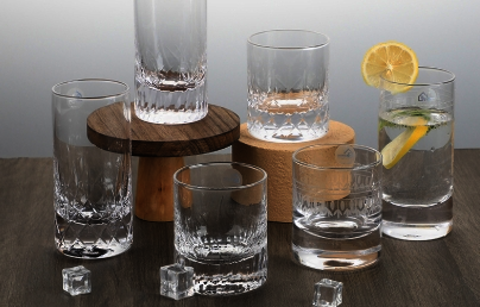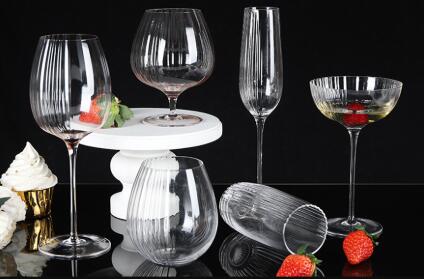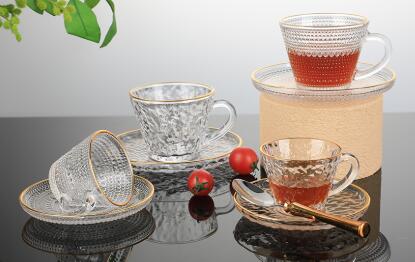The top 4 factors for buying a glass teapot
Pulished on Apr. 09, 2019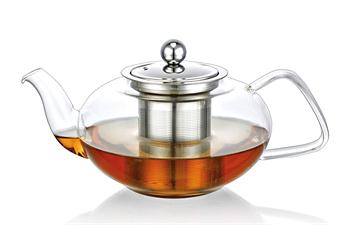
1. The high borosilicate glass teapot is preferred
There are two different glass teapot on the market: normal glass teapot and heat resisting glass teapot. The normal glass teapot is generally used at a temperature of "-5 to 70 ° C", but for heat resisting glass teapot can be used up to a temperature of 400 to 500 degrees, and can withstand an instantaneous temperature difference of "-30 to 160 ° C". As a tea + tea making tool, a high temperature resistant and light weight borosilicate glass teapot is preferred.
The borosilicate glass has a low expansion coefficient, so it would not burst when the instantaneous temperature difference suddenly changes; the high temperature and acid resistance also make it difficult to precipitate substances harmful to the human body in daily drinking water use.
Usually, for a high-quality borosilicate glass teapot, there is a uniform thickness, looks very transparent under the sunlight, has a good refractive effect, and sounds crisp.
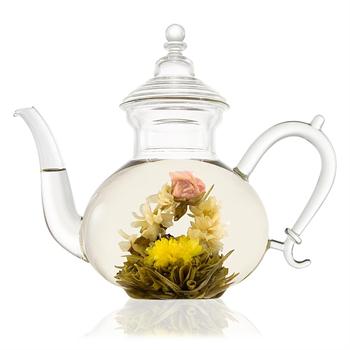
2. For glass, is not the thicker the better
High borosilicate glass is generally not very thick, because many tea sets need to be heated by the open flame. If the glass is too thick and the insulation is too good, it will not be able to heat the insulation.
However, anti-collision is also a very important indicator. It can't be said that it can resist high temperature, then no need to care about the impact resistance. The impact resistance of too thin glass is relatively weak. Therefore, the thickness of the heat-resistant glass teapot has been formulated through comprehensive professional considerations. It is not recommended to buy too thin or too thick glass teapot.
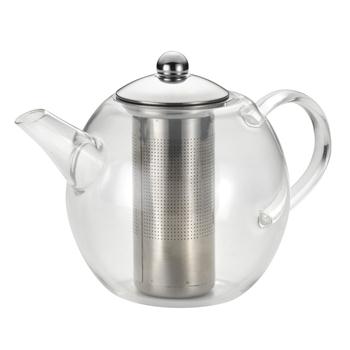
3. The tightness of the lid should be appropriate
If the lid and the neck of the teapot are too loose, it is easy to fall off when used. And if it is absolutely consistent, it is also prone to jam, and easy to cause damage.
Therefore, the lid and the body of the glass pot should maintain a certain degree of tightness.
Furthermore, the glass teapot is not a pressure-resistant container that can withstand pressure. If the cover is too tight, the air will expand and contract when the internal temperature changes (whether it is natural cooling or open flame heating). If the air pressure difference cannot be balanced, the entire glassware becomes a pressure vessel, and if it exceeds the pressure load, an explosion will occur.
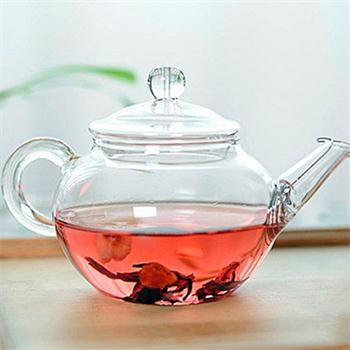
4. Allow the presence of small bubbles
The number and size of bubbles are one of the manifestations of quality. However, the probability of producing “no manual traces without any small bubbles” in a high-temperature processing environment is almost zero, and it also would appear with any expensive heat-resistant teapot. But as long as it does not affect the appearance and use, we should allow some inevitable manual traces and small bubbles to exist.
Glass teapot is a good tea utensil for tea making: the bright color of the tea soup, the tenderness, and softness of the tea, the tea flowing through the whole brewing process, the gradual stretching of the leaves, etc., whole can be seen, it can be said that A dynamic art appreciation.
Hope above 4 tips can help you get a good glass teapot.







